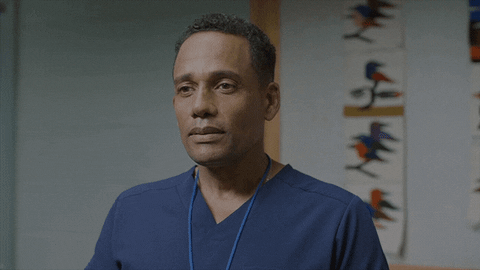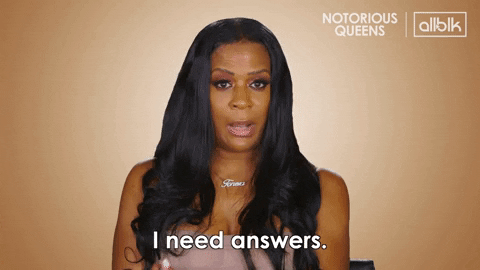- The Mind, Explored.
- Posts
- Redefining 'Antidepressant'
Redefining 'Antidepressant'
Wrong explanations for mental illness lead to wrong solutions.

In his book ‘Lost Connections’, Johann Hari tells the story of a rice farmer in Cambodia who became depressed after a tragic incident, and recovered with a different kind of antidepressant1.
One day, the rice farmer stepped on a land mine left behind by the US during the war, blowing his leg off. He was fitted with a new limb, but he still felt physical pain and intense anxiety on the rice fields (as anyone would). He started crying all day, refused to get out of bed, and developed all the clinical symptoms of depression.
When his doctors and neighbours realised he was depressed, they sat with him and talked through his troubles. Together, they realised it was perfectly reasonable to be depressed and anxious about working where a traumatic incident occurred.

So, they had an idea. What if, instead of being a rice farmer, he became a dairy farmer? This would involve less pain on his false leg and would mean he wouldn’t have to work in the rice fields that gave him flashbacks. So, they bought him a cow.
His life changed. His depression and anxiety vanished. He was able to engage in meaningful work in a trauma-free environment.
This wasn’t about changing his brain chemistry with a pill. This was about a community coming together to empower a depressed person to change his life.
Insight:
Depression (like any mental health problem) is often a perfectly reasonable response to adverse life circumstances.
For so long, mental health problems have been thought of as problems in our brain chemistry, expecting medication to ‘fix’ us. Although prescribed medication can be life-changing for many people, 65-80% of people who take chemical antidepressants are depressed again within a year after stopping them2,3,4.

This is because chemical antidepressants do not address the root cause of mental health problems: our life circumstances. By relying on them, we overlook the social and psychological solutions that are required to address the social and psychological root causes.
The story of the Cambodian farmer begs the question:
“What if changing the way we live - in specific, targeted, evidence-based ways - could be seen as an antidepressant, too?”
In ‘Lost Connections’, Hari shares his story of being on the maximum dose of paroxetine (an antidepressant) for 13 years, with no lasting improvement. As a journalist, he analysed the key research papers and interviewed experts around the world to discover the real causes of depression and anxiety.
He distilled his findings down to 7 types of disconnection:
Disconnection from meaningful work
Disconnection from other people
Disconnection from meaningful values
Disconnection from childhood trauma
Disconnection from status and respect
Disconnection from the natural world
Disconnection from a hopeful or secure future
Instead of being something to suppress, Hari explains that symptoms of depression are signals we need to listen to. Signals that we have become disconnected from something we need but have lost along the way. As he puts it:
“What if (depression) is a form of grief for the connections we have lost, yet still need?”
If disconnection is the main driver of our depression and anxiety, we need to find ways to reconnect. These forms of reconnection are social or psychological antidepressants, in contrast to the chemical antidepressants we have been offered up to now.

Tool:
Stop thinking there’s something ‘wrong’ with you: The Indian philosopher Krishnamurti said, “It’s no sign of good health to be well-adjusted to a sick society.” If the conditions around us are sick, then it makes sense for us to become sick.
Identify your lost connections: From the 7 types of disconnection listed above, consider what factors could be causing depression or anxiety. If you could use additional support, seek help from a mental health professional to address these unmet needs.
Find your cow: Think about how you can reconnect with these lost connections. This may mean different work, investing more deeply in your relationships, or spending more time in nature, among many other solutions. Not all will be easy or even possible straight away, but help is there if you need it (check out these resources and helplines).

Self-Reflection:
When you feel (or have felt) depressed or anxious, can you identify an important aspect of your life that you felt disconnected from? Reconnecting with this lost connection may be the most direct route to a brighter future.
Resources on Redefining ‘Antidepressants’:
One video: What the best science really says about depression | Johann Hari (Big Think) - listen to Johann tell the story of this Cambodian farmer in his own words.
One report: Depression – It’s really not all in the mind (YPMH) - bringing together all the research and innovation that YPMH has conducted since 2019, this report explains why and how depression develops (spoiler alert: it’s not all in the mind).
One podcast: Superconnecting the Ecosystem of YPMH - Peter Templeton (MindTech) - I sat down with the founder of YPMH to explore the real causes of depression in young people, and I learned a lot that wasn’t covered during my years at medical school.
References:
Hari, J., “Lost Connections: Uncovering the Real Causes of Depression – and the Unexpected Solutions”, Bloomsbury Publishing (2018).
Corey-Lisle, P. K. et al., "Response, Partial Response, and Nonresponse in Primary Care Treatment of Depression”, Archives of Internal Medicine 164 (2004): 1197-1204.
Trivedi et al., "Medication Augmentation after the Failure of SSRIs for Depression," New England Journal of Medicine 354 (2006): 1243-1252.
Stephen S. Ilardi, “The Depression Cure: The Six-Step Programme to Beat Depression Without Drugs”, Ebury Publishing (2018): 44-5.
Written by Dr Manu Sidhu 🩺
I need your help!
As a doctor, I became increasingly frustrated at how much improvement is needed in mental health, and how difficult it is to achieve this one patient at a time.
So, I have gone all-in on building a startup to improve mental health at scale. If you are between 18 - 35 years old, we want to make sure we create something that you need, want, and would love to use. 🫵🏽
It would help us massively if you could share your perspective in this 2-minute survey, which we have tried to make as easy and fun as possible. 😌
If you could share it with a few friends, we would be even more grateful! Thank you 🙏🏽 we’ll keep you updated as we develop our solution from the insights you give us 👀
Feel free to email me with any thoughts, questions, or more detailed feedback.
If this article resonated with you, the best way for you to support is by sharing it with others who may be interested.
If this article has been forwarded to you, someone who knows you well believes you may be interested in mind-related content.
To receive emails with articles like this, subscribe here.
Disclaimer:
The Mind, Explored. is for informational purposes only and does not constitute the practice of professional health care services, including the giving of medical advice, and no doctor/patient relationship is formed. The use of information in this newsletter or materials linked from this newsletter is at the user’s own risk. The content of this newsletter is not intended to be a substitute for professional medical advice, diagnosis, or treatment. Users should not disregard or delay in obtaining medical advice for any medical condition they may have and should seek the assistance of health care professionals for any such conditions.

Reply